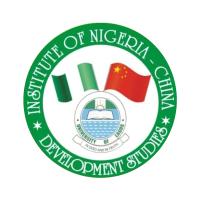分享
Macao proves ‘one country, two systems’ right
2019-12-18 21:51
华人号:NIGERIA CHINA TIMES
Macao, a city that enjoys political stability, rule of law, has seen remarkable development and orderly integration into China’s system.
After 20 years of development following its return to China, Macao has been more confident with bright prospects. The Chinese central government has been seeking to develop the city as a bridge that links China and the West in terms of economy, trade and culture. China is also committed to the policy for the Macao people to govern Macao, with patriots playing the principal role. Thanks to that, the society in Macao has aligned its local perspectives and interests with those of the Chinese mainland, and is proactive to be part of the Guangdong-Hong Kong-Macao Greater Bay Area and the China-proposed Belt and Road Initiative(BRI). The city has thus become a unique and important source for the great rejuvenation of the Chinese nation.
Macao’s success stems from the “one country, two systems” principle. When Macao just returned to China, its security and economy were in a bad shape. That image has totally changed as the city is comprehensively supported by the central government in policies and is enjoying a high degree of autonomy, which is ensured by the Macao Basic Law, including independence in formulating its own policy to develop the local entertainment and recreation industry.
Given that Macao’s development could be limited due to its land resources, the central government and authorities of Guangdong Province have launched a slew of measures to solve the problems the city faces. Under the “one country, two systems” principle, the central government also supports the Macao SAR government in promoting certain industries with its own characteristics to improve its international status, seeking to build the city into an international entertainment hub, a platform for commercial exchanges between China and Portugal, and a stage for China-West cultural interactions.
Macao people’s patriotic recognition of China is the foundation of sound governance in the city both before and after the city’s return. The Macao Basic Law was formulated based on Hong Kong’s experiences but with a more meticulous and rational design with regard to democracy.
Besides, the implementation of Article 23 of the Basic Law and judicial reform, which excluded foreign judges in Macao from taking charge of national security-related cases, have helped avoid social unrest.
The social security and welfare system in Macao has been successful in solving problems of people's livelihood and protecting vulnerable groups. This lends stability to society and mitigates social contradictions.
In contrast, the unrest in Hong Kong exposed contradictions and confrontations in the city, which has seen external interference and “color revolution”-style tumult. Hong Kong’s economy, international status, and the influence left behind by British rulers have decided it won’t be an easy task to bring sound governance to the city. Moreover, the society in Hong Kong has put too much attention to pursuing general election under “complete autonomy”, and this has further split the society.
In Hong Kong, problems such as real estate hegemony and the wealth gap are still left unanswered while having led to increasingly radicalized social movements. Not to mention that outside forces have been meddling in the city and international financial speculators who want to take advantage of the unrest to do a “big short” in Hong Kong are waiting for an opportunity.
With the 20th anniversary of Macao’s return to China just round the corner, the above analysis and comparison between the two SARs might help the central government plan further moves to better promote “one country, two systems” principle, which aims at national unity, economic modernization, system modernization, and integrated development of a community of shared future for mankind.
What Macao achieved in the past 20 years has shown that “one country, two systems” principle is scientific and feasible. It can also be a useful benchmark for Hong Kong and the reunification of Taiwan with the motherland.
The author is associate professor at Beihang University in Beijing and member of Beijing-based Chinese Association of Hong Kong and Macao Studies. opinion@globaltimes.com.cn
Source:Global Times
By Tian Feilong
以上就是小编为您分享《Macao proves ‘one country, two systems’ right》的全部内容,更多有关Federal Republic of Nigeria华人最新消息、新闻,请多多关注华人头条Opinions 频道。您还可以下载我们的手机APP,每天个性化推荐你想要看的华人资讯!
免责申明
1、本站(网址:52hrtt.com)为用户提供信息存储空间等服务,用户保证对发布的内容享有著作权或已取得合法授权,不会侵犯任何第三方的合法权益。
2、刊载的文章由平台用户所有权归属原作者,不代表同意原文章作者的观点和立场。
3、因平台信息海量,无法杜绝所有侵权行为,如有侵权烦请联系我们(福建可比信息科技有限公司 邮箱:hrtt@52hrtt.com),以便及时删除。
举报收藏点赞
评论
(0条)

您需要登录后才能评论,点击此处进行登录。
登录后评论
- News
- China
- Opinions
To be seenDiscovery of My courageThe Biggest ClassroomTwo Bowls of NoodlesPath to a Small Town Girl’s DreamLittle Sparks That Light Up the SkyExpat Eyes | African student: Xinjiang, united in history, culture and diversityExpat Eyes | An Ethiopian student extends his thanks to ChinaPrized Learners Mentorship Club Students Experience Vibrant Cultural Exchange at China Cultural Centre
最新资讯
CMG Spring Festival Gala: A Spectacular Celebration of Chinese New Year
NIGERIA CHINA TIMES01-06 18:04
下载华人头条

关于我们
© 2022 华人头条
服务热线 : 0591-83771172
福建可比信息科技有限公司 ©版权所有
直播备案号 闽ILS备201708250005
举报热线:0591-83771172
举报邮箱:hrtt@52hrtt.com
免责声明
1、本站(网址:52hrtt.com)为用户提供信息存储空间等服务,用户保证对发布的内容享有著作权或已取得合法授权,不会侵犯任何第三方的合法权益。
2、刊载的文章由平台用户所有权归属原作者,不代表同意原文章作者的观点和立场。
3、因平台信息海量,无法杜绝所有侵权行为,如有侵权烦请联系我们(福建可比信息科技有限公司 邮箱:hrtt@52hrtt.com),以便及时删除。

 闽公网安备35010202000536号
闽公网安备35010202000536号